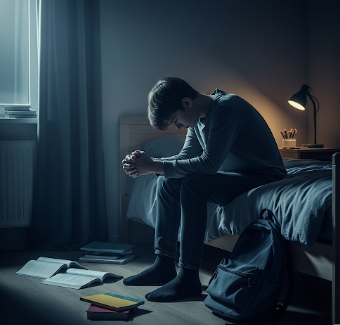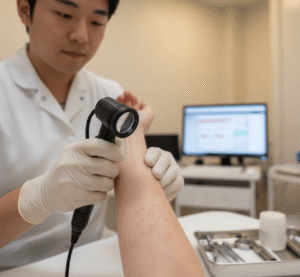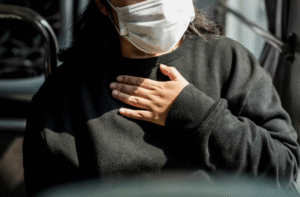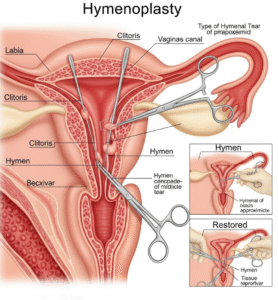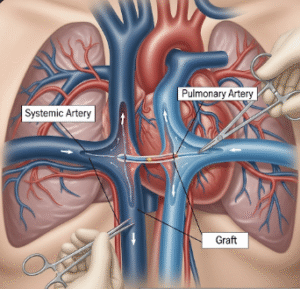Overview
Anxiety in teenagers is a common mental health concern characterized by excessive worry, fear, or nervousness that interferes with daily life. Adolescence is a period of rapid physical, emotional, and social changes, making teenagers particularly vulnerable to anxiety disorders. While occasional stress is normal, persistent anxiety can affect school performance, relationships, sleep, and overall well-being. In Korea, mental health clinics, counseling centers, and hospitals provide comprehensive support for teenage anxiety, including counseling, therapy, and, when necessary, medication, ensuring a holistic approach to mental health care.
Key Facts
▶ Prevalence: Anxiety affects approximately 1 in 5 teenagers globally, with rising rates in urbanized areas.
▶ Types: Can be generalized anxiety disorder (GAD), social anxiety, panic disorder, or specific phobias.
▶ Common Symptoms: Excessive worry, irritability, restlessness, sleep disturbances, and difficulty concentrating.
▶ Impact: May affect school performance, social interactions, and family relationships.
▶ Treatment Options in Korea: Includes counseling, cognitive-behavioral therapy (CBT), mindfulness programs, and pharmacological interventions when necessary.
What is Anxiety in Teenagers?
Anxiety in teenagers is a psychological condition involving persistent worry or fear that is disproportionate to the situation. Teenagers may experience anxiety about academic performance, social acceptance, family issues, or future uncertainties.
▶ Generalized Anxiety Disorder (GAD): Constant worry about multiple areas of life.
▶ Social Anxiety: Fear of social situations, embarrassment, or judgment.
▶ Panic Disorder: Sudden episodes of intense fear accompanied by physical symptoms like heart palpitations.
▶ Specific Phobias: Anxiety triggered by particular objects or situations, such as heights or public speaking.
Note: Teenagers may not always express anxiety verbally, and symptoms often manifest as irritability, withdrawal, or physical complaints.
What Symptoms Are Related to Anxiety in Teenagers?
▶ Excessive Worry: Persistent concern over school, family, or friendships.
▶ Restlessness or Nervousness: Difficulty relaxing or staying still.
▶ Irritability or Mood Swings: Easily frustrated or angry.
▶ Sleep Disturbances: Trouble falling asleep, waking frequently, or nightmares.
▶ Difficulty Concentrating: Trouble focusing on schoolwork or tasks.
▶ Physical Symptoms: Headaches, stomachaches, rapid heartbeat, or muscle tension.
▶ Avoidance Behavior: Avoiding social situations, school, or activities that trigger anxiety.
What Causes / Possible Causes
Teenage anxiety arises from a combination of genetic, environmental, and psychological factors:
▶ Genetic Predisposition: Family history of anxiety or other mental health disorders.
▶ Environmental Stressors: Academic pressure, peer pressure, bullying, or family conflict.
▶ Brain Chemistry: Imbalances in neurotransmitters such as serotonin and dopamine.
▶ Personality Traits: Perfectionism, high sensitivity, or low self-esteem.
▶ Traumatic Experiences: Loss, abuse, or exposure to violence.
▶ Social Media and Technology: Constant comparison, cyberbullying, and information overload.
▶ Chronic Illness or Physical Conditions: Health problems can exacerbate anxiety symptoms.
When Should I See a Doctor or Mental Health Professional?
▶ Persistent Anxiety: Lasting for weeks or months and interfering with daily life.
▶ Severe Symptoms: Panic attacks, self-harm thoughts, or extreme avoidance behavior.
▶ Sleep or Appetite Changes: Significant disruptions affecting health and growth.
▶ Academic Decline: Marked drop in school performance due to anxiety.
▶ Social Withdrawal: Avoiding friends, extracurricular activities, or family interactions.
▶ Physical Complaints: Headaches, stomachaches, or other stress-related symptoms without a clear medical cause.
Tip: Early intervention can prevent chronic anxiety and promote healthy emotional development.
Care and Treatment
Initial care often involves supportive measures at home and school:
▶ Open Communication: Encourage teenagers to talk about their worries without judgment.
▶ Routine and Structure: Consistent schedules for sleep, meals, and study reduce anxiety.
▶ Physical Activity: Regular exercise to reduce stress and improve mood.
▶ Mindfulness & Relaxation: Techniques such as meditation, deep breathing, or yoga.
▶ Limiting Screen Time: Reducing social media or electronic device use to decrease overstimulation.
Treatment Options in Korea
Counseling and Therapy:
▶ Cognitive Behavioral Therapy (CBT): Helps teenagers identify and change negative thought patterns.
▶ Family Therapy: Improves communication and addresses family-related stressors.
▶ Group Therapy: Provides peer support and coping strategies in a safe environment.
Medical Treatments:
▶ Medication: Antidepressants or anti-anxiety medications prescribed under professional supervision.
▶ Monitoring and Follow-Up: Regular appointments to track progress and adjust treatment.
School and Community Support:
▶ School Counseling Programs: Guidance counselors and psychologists provide coping strategies and academic support.
▶ Community Centers and Hotlines: Access to professional mental health services outside the hospital setting.
▶ Educational Programs: Workshops for stress management, mindfulness, and emotional resilience.
Outcome: With early recognition, appropriate therapy, and supportive care in Korea, most teenagers can manage anxiety effectively, improve social functioning, and maintain a healthy emotional balance.

